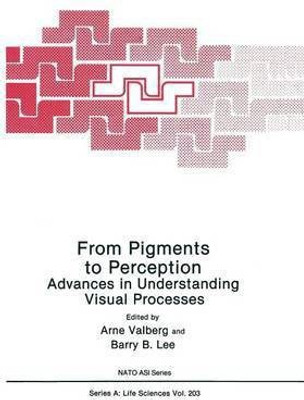From Pigments to Perception(English, Paperback, unknown)
Quick Overview
Product Price Comparison
Two techniques were used to estimate the L/M cone ratio, best-fit linear sum of the L- and M-cone spectral sensitivities to heterochromatic flicker photometric spectral sensitivity and psychometric function shape for point source detection of lights of varying wavelength. Data from five color-normal observers run on both paradigms all are consistent with a preponderance of L-cones relative to M-cones though there are individual differences in the estimates of L/M cone ratio. The observers showed congruence in their individual results across technique. In a separate study, the perceptual consequences of individual variation in L/M cone populations were evaluated by looking for a relation between flicker photometric spectral sensitivity and the spectral locus of equilibrium yellow. No significant relation was found, suggesting that receptor populations do not play a major role in the normalization of the perceptual red/green opponent channel. ACKNOWLEDGEMENT Supported in part by USPH NEI grant EY00901. REFERENCES Adam, A. (1969) Foveal red-green ra. C10S c:,f normals, colorblinds and heterozygotes. Proceedings Tel-Hasrcomer Hospital (Tel-Aviv). 8: 2-6. Ahnelt, P. , H. Kolb and R.Pflug. (1987). Identification of a subtype of cone photoreceptor, likely to be blue sensitive, in the human retina. Journal of Compa:cative Neurology. 255: 18-34. Alpern, M. and E. Pugh. (1977). variation in the action spectrum of erythrolabe among deuteranopes. Journal of Physiology (London). 266: 613-646. Boynton, R. (1979). Human Color Vision. New York, Holt, Rinehart and Winston. Brindley, G. (1954) The summation areas of human colour-receptive mechanisms at increment threshold.


